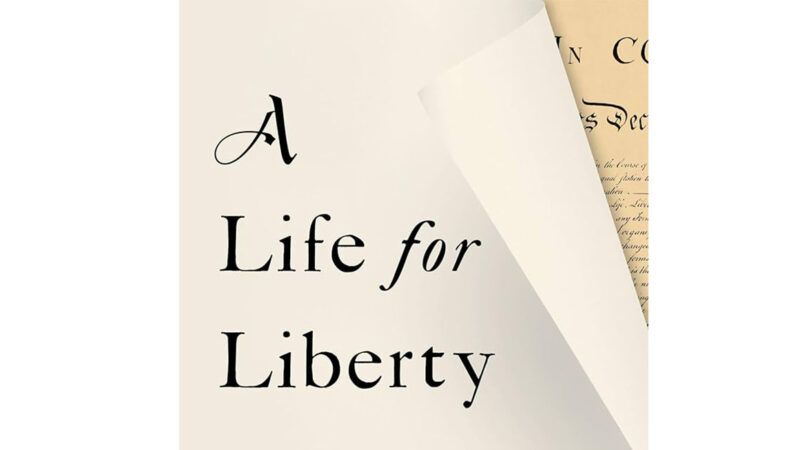Review: A Radical Libertarian Lawyer Charts His Evolution
Randy Barnett developed an influential form of constitutional originalism.

Georgetown University law professor Randy Barnett argued for the right to medical marijuana for personal use before the Supreme Court in Gonzales v. Raich (2005), and he garnered three votes where most predicted no more than one. He was also part of the legal team in NFIB v. Sebelius (2012) that tried to end Obamacare's individual insurance purchase mandate. While Barnett's side lost, the case helped revive the notion that the enumerated powers construct in Article 1, Section 8 of the Constitution could still be meaningfully called on.
Barnett started off in the 1970s, though, as just part of a tiny gang of radical libertarians striving to influence academia and political culture, a devotee of the anarcho-capitalist firebrand Murray Rothbard. Barnett's intellectual education was shaped by movement organizations such as the Center for Libertarian Studies and the Institute for Humane Studies.
In his memoir, A Life for Liberty, Barnett traces his intellectual entrepreneurship as he shifted his theoretical emphases from punishment and restitution to a consent theory of contracts to constitutional theory. His interest in the latter started by taking the Ninth Amendment's unenumerated rights seriously when no one else did. The version of originalism he was key in developing and promoting (after many years of thinking that if the Supreme Court wasn't taking the Constitution seriously, why should he?) says that jurists should examine the understood public meaning of terms in the Founding era as opposed to trying to guess the Framers' "intentions." This has become an increasingly influential approach to constitutional thinking.
Editor's Note: As of February 29, 2024, commenting privileges on reason.com posts are limited to Reason Plus subscribers. Past commenters are grandfathered in for a temporary period. Subscribe here to preserve your ability to comment. Your Reason Plus subscription also gives you an ad-free version of reason.com, along with full access to the digital edition and archives of Reason magazine. We request that comments be civil and on-topic. We do not moderate or assume any responsibility for comments, which are owned by the readers who post them. Comments do not represent the views of reason.com or Reason Foundation. We reserve the right to delete any comment and ban commenters for any reason at any time. Comments may only be edited within 5 minutes of posting. Report abuses.
Please to post comments


A story about an attorney that has had several trials where he finished in second place.
So trials and tribulations.
I have a lot of respect for him. But his recent screen that libertarian needs a radical rethink made me wonder if he's reached his use-by date.
Why is Randy Barnett's memoir reported on under "Entertainment"?
I seem to remember a time when Reason's book reviews made interesting reading. This doesn't pass muster.
This "book review" doesn't even bother to review the book. Perhaps there are a few paragraphs missing?